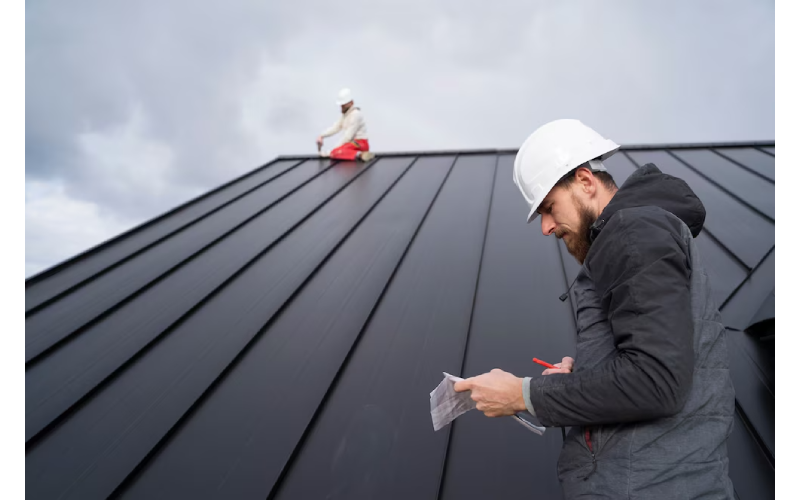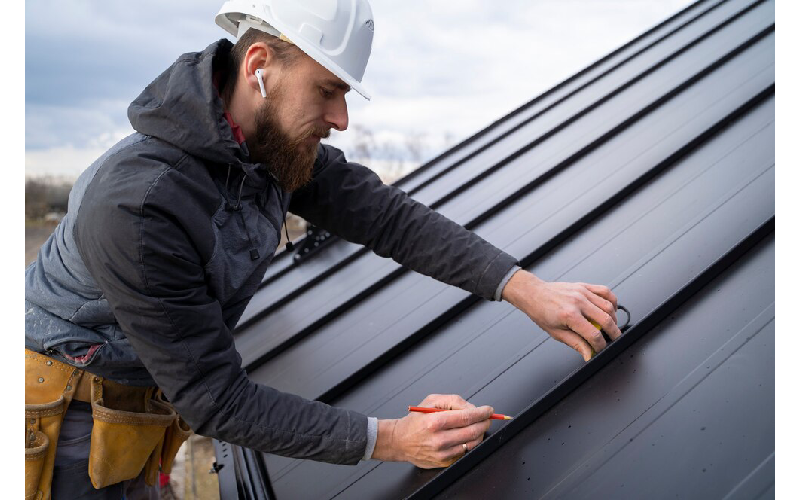Michigan’s roofing landscape is evolving with a focus on sustainability, driven by environmental concerns and economic benefits. Sustainable roofing practices not only aim to enhance building efficiency but also reduce environmental impact. From energy savings to improved durability, these solutions offer a holistic approach to roofing that meets the diverse needs of Michigan’s urban and suburban areas.Sustainable roofing in Michigan offers a range of environmental benefits, making it a crucial consideration for both residential and commercial properties across the state. From conserving energy to reducing urban heat island effects, here are some key advantages
Reduced Energy Consumption How Sustainable Roofing In Michigan Can Lower Your Bills
Sustainable roofing in Michigan integrates energy-efficient materials and designs that significantly reduce heat absorption. By minimizing thermal transfer, these roofs lessen the strain on HVAC systems, leading to lower energy consumption and utility bills. This approach not only benefits individual homeowners but also contributes to statewide energy conservation efforts, aligning with Michigan’s commitment to sustainable living and cost-effective building practices.One of the primary benefits of sustainable roofing in Michigan is its ability to enhance energy efficiency. Michigan experiences diverse weather patterns throughout the year, from hot summers to cold winters. Sustainable roofing materials such as cool roofs or green roofs can significantly reduce the amount of heat absorbed and transferred into buildings during hot weather.

Long-Term Durability Why Investing In Sustainable Roofing In Michigan Pays Off
Investing in sustainable roofing options in Michigan offers long-term durability that withstands the state’s varied climate conditions. From harsh winters to humid summers, durable roofing materials like metal, clay tiles, or composite shingles ensure prolonged protection and structural integrity. This durability not only enhances property value but also reduces maintenance costs over time, making sustainable roofing a wise investment for homeowners and businesses alike across Michigan.Urban areas in Michigan, particularly cities like Detroit and Grand Rapids, can experience a phenomenon known as the urban heat island effect. This occurs when urban environments become significantly warmer than their rural surroundings due to human activities and the absorption of solar energy by buildings and paved surfaces.
Stormwater Management Sustainable Roofing Solutions For Michigan’s Climate
Michigan’s climate variability necessitates effective stormwater management strategies, which sustainable roofing solutions can provide. Green roofs and permeable materials help absorb rainwater, reducing runoff and alleviating pressure on local drainage systems. By mitigating flood risks and enhancing water quality, these roofing practices support Michigan communities in adapting to changing weather patterns while promoting sustainable urban development.Sustainable roofing, such as cool roofs that reflect more sunlight and absorb less heat, can mitigate this effect by reducing surface temperatures and improving overall comfort levels in urban areas.
Urban Heat Island Effect Mitigation How Sustainable Roofing In Michigan Helps
Sustainable roofing in Michigan plays a crucial role in mitigating the urban heat island effect by minimizing heat absorption and reflecting solar radiation. Cool roofing materials and green roofs reduce surface temperatures, thereby lowering ambient temperatures in urban areas. This not only enhances comfort for residents but also reduces energy demand for cooling, contributing to a more sustainable and resilient built environment across Michigan’s cities and suburbs.Michigan often faces challenges related to stormwater management, especially in urban settings where impervious surfaces like roofs and pavement contribute to runoff.
Material Recycling And Waste Reduction Sustainable Roofing Practices In Michigan
Adopting sustainable roofing practices in Michigan involves prioritizing materials that are recyclable or made from recycled content. This approach minimizes construction waste and supports local recycling industries, reducing landfill contributions and conserving natural resources. By embracing circular economy principles, Michigan homeowners and contractors contribute to environmental stewardship while promoting a sustainable supply chain for roofing materials statewide.
Enhanced Air Quality Benefits Of Sustainable Roofing In Michigan Urban Areas
Sustainable roofing solutions in Michigan contribute to improved air quality by reducing pollutants and particulate matter in urban environments. Green roofs and reflective surfaces help mitigate air pollution, enhancing public health and quality of life for residents. This proactive approach aligns with Michigan’s sustainability goals, fostering healthier communities and supporting statewide initiatives for cleaner air and sustainable urban development practices.
How Sustainable Roofing In Michigan Contributes To Resilience?
In the face of climate change, sustainable roofing practices in Michigan bolster resilience against extreme weather events and temperature fluctuations. By enhancing building durability and energy efficiency, these roofs support adaptive strategies that mitigate climate risks and protect infrastructure investments. From increasing property resilience to promoting community sustainability, Michigan’s adoption of sustainable roofing technologies underscores a proactive approach to climate adaptation and future-proofing urban and suburban environments.
Conclusion
Sustainable roofing practices in Michigan are integral to building a resilient, energy-efficient, and environmentally responsible future. By embracing durable materials, effective stormwater management, and innovative designs, Michigan homeowners and businesses can reduce costs, enhance property value, and contribute to statewide sustainability efforts. As climate challenges evolve, investing in sustainable roofing not only benefits individual properties but also strengthens community resilience and supports a greener, healthier Michigan for generations to come.Sustainable roofing solutions such as green roofs or roofs with rainwater harvesting systems can help absorb rainwater, reduce stormwater runoff, and improve water quality by filtering pollutants before they enter local waterways.
Resource Link:
https://en.wikipedia.org/wiki/Roofer

Fran Bullock, a literary explorer rooted in the charm of England, unearths stories that resonate with the echoes of history. With a quill dipped in nostalgia, she pens tales that bridge the past and present, weaving narratives that captivate the soul.




